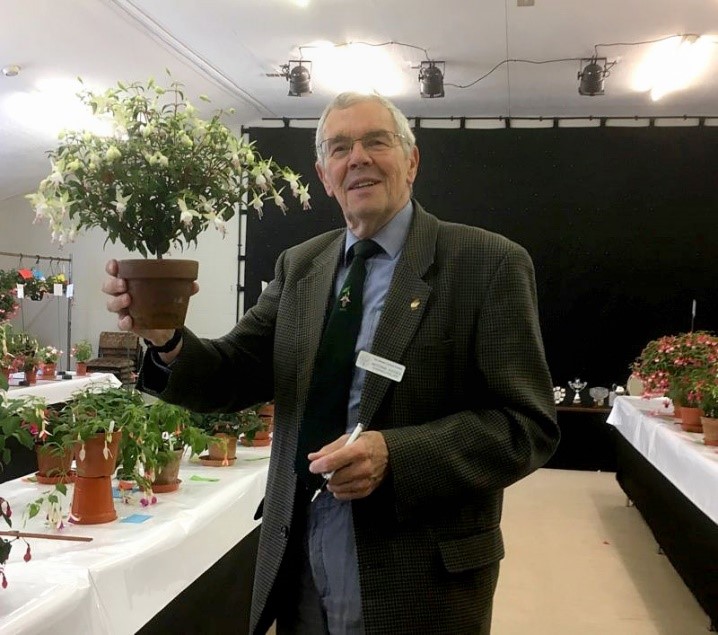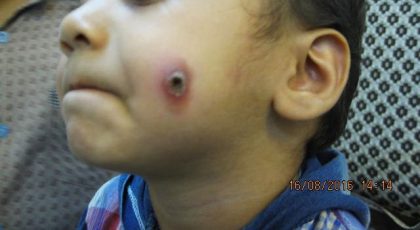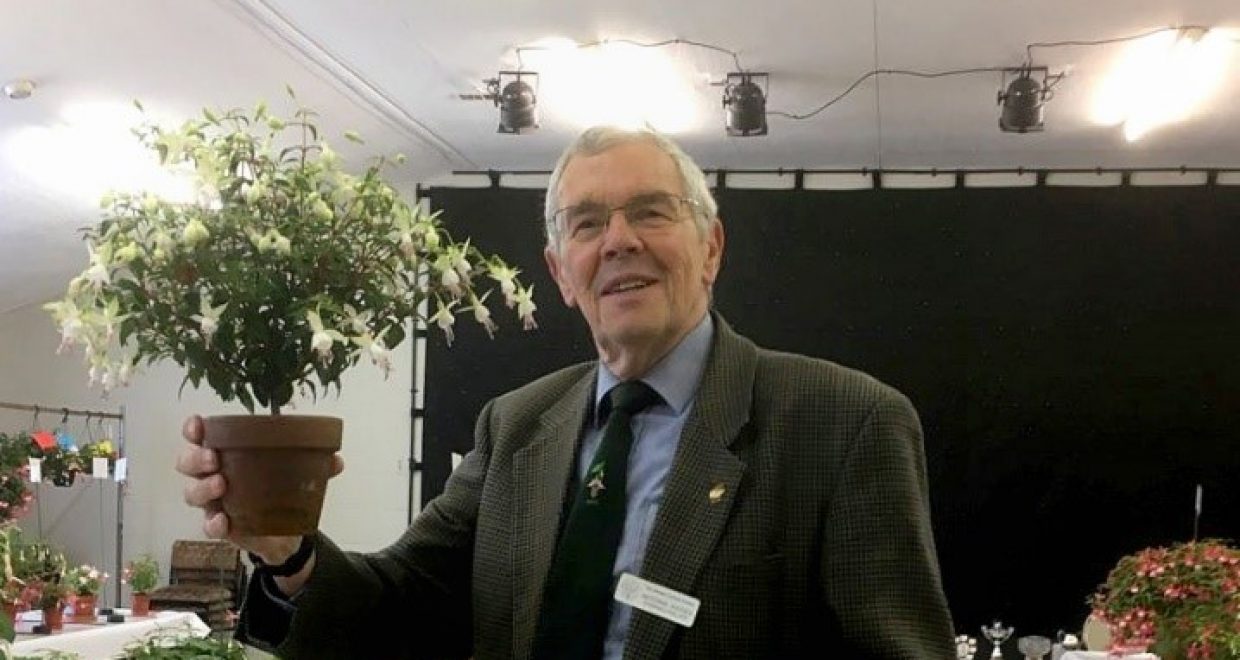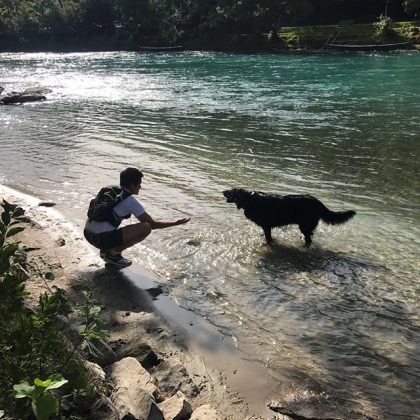Meet the Editors: Q&A with Professor Stephen Phillips MBE, Editor-in-Chief of Parasitology
Welcome to our “Meet the Editors” series, where we interview the editorial team about their work and their relationship to the journal. First up is Professor Stephen Phillips, Editor-in-Chief of Parasitology

What is your current job title both within Parasitology and outside of the journal? Where are you based in the world? What is the goal of your research?
I have been a dedicated parasitologist since graduating in Zoology in 1964. I joined Parasitology as an Editor in 2000 to replace Frank Cox when he retired. I am currently the Editor-in-Chief for the journal, a position which I assumed when the then Editor-in-Chief, Professor Chris Arme, resigned from the journal at short notice in 2008. Chris soon afterwards became the successful Editor-in-Chief for Parasites and Vectors. My role is to lead the team of six Editors. Papers submitted to the journal are first checked for their conformity to our ‘Instructions for Contributors’ by Alison Sage, our editorial assistant, and I then assign them to the Editors or retain the papers myself. The submitted papers are then passed through the refereeing process by the editors. We have a wide range of expertise across the Editors and normally papers are allocated to an Editor with the expertise matching the subject matter of the paper. One Editor, Professor John Ellis, has responsibility for the Special Issues and takes all Special Issue papers.
Although officially retired, I am Professor Emeritus and a Senior Research Fellow in the Institute of Biodiversity, Animal Health & Comparative Medicine, at the University of Glasgow. I came to Glasgow in April 1972 where I have been Head of two different departments and Dean of the Science Faculty. In addition to editing Parasitology, I continue serving on a number of University Committees, and I am Chairman of the Board of Directors of the Scottish Accreditation Board, which accredits training courses across the UK, for the Home Office (HO). These training courses are mandatory for people wishing to apply for a licence from the HO to use animals in scientific work. I have had a Visiting Professorship in Taiwan for close on 20 years. Outside my academic activities I fill my time with a number of hobbies, including photography, hill walking, as a judge for the Glasgow and District Photographic Union, as a national judge for the British Fuchsia Society, and I am in my 40th year as a member of the Children’s Panel, the unique Scottish juvenile justice system. We also childmind the two of our grandchildren who live in Glasgow, two days each week.

Most of my working life has been devoted to research on the immune response to malaria parasites, in rodents, monkeys and humans, and immune evasion by malaria parasites. Since retiring my research has focused on leishmania parasites. One of my research students, Hamid Daneshvar, from Kerman University, Iran, serendipitously discovered a procedure for attenuating leishmania parasites in culture, and in collaboration with a colleague, Dr Richard Burchmore in Synthetic Biology and Industrial Biotech at the University, has investigated what has changed in the attenuated parasite lines. In addition Hamid has demonstrated that these attenuated parasites can be used to vaccinate mice, dogs and now people against challenge with virulent parasites. Large scale vaccine trials are currently underway in Iran in people against the cutaneous leishmania Leishmania major, and in dogs against the visceral leishmania L. infantum; the results are very promising indeed. Drug treatment of leishmaniasis is not easy and hence successful vaccines to protect against leishmaniasis will be a major step forward.
When did you first become interested in parasitology as a field? Did a particular teacher or mentor direct your career path?
When I was in the 6th form at the Manchester Grammar School a biology teacher, John Brierley, recommended the class listen to the Reith Lectures on the radio which that year were given by (Sir) Peter Medawar and which were called the ‘Uniqueness of the Individual’. Medawar was an immunologist and was awarded the Nobel prize for Medicine in 1961 jointly with McFarlane Burnett. Up to that point I had planned to do marine biology at university but Medawar and immunology caught my imagination. I discovered Medawar was Jodrell Professor of Zoology at University College London (UCL), applied to UCL, passed the entrance examination and was accepted into Zoology there. At the end of my first year at UCL Medawar left to become Director of the National Institute for Medical Research (NIMR), Mill Hill. Immunology was not available as a specialist subject in the third year at UCL and enthused by Keith Vickerman and Frank Cox (at King’s College) I chose parasitology. (Frank Cox was an editor of Parasitology for 20 years before me). I was fortunate to be awarded an Agricultural Research Council Scholarship for a PhD which I took to Cambridge and worked on the immune response in rats and cattle to babesia parasites. I was one of the first to demonstrate that babesia parasites in the blood undergo antigenic variation, and led to my first Nature paper. Towards the end of my PhD I gave a talk at the 1967 Spring meeting of the British Society for Parasitology. I was the last talk of the meeting but fortunately Neil Brown from the Division of Parasitology at NIMR had stayed on and was interested enough in what I had done, to invite me to NIMR for interview for a job in the Division of Parasitology: Head of Division at that time was Frank Hawking, Stephen Hawking’s father. I still have the letter from Medawar offering me a job at NIMR and he remembered me from my undergraduate days at UCL, telling me he would be glad to have another UCL man at the Institute! I started working on malaria at NIMR. Five years later, Keith Vickerman who had moved from UCL to the University of Glasgow, contacted me to tell me that there was a lectureship to be advertised in Zoology at Glasgow. I applied and was successful, and I have remained there since 1972. Keith Vickerman remained a good friend to me and was a great supporter of the journal, until sadly he died 3 years ago.
How did you first become familiar with Parasitology? What motivated you to become an editor?
If you were a parasitologist, in my early days, Parasitology was one of the first ports of call to publish your work, after Nature. My first published papers were in Parasitology, and many parasitologists of my vintage will tell a similar tale.
I had never any ambition to be an editor of Parasitology or indeed of any journal! The invitation to become one of the Editors came out of the blue from Frank Cox. At that time there were only two Editors. Frank knew of my research work, and he was a very close friend of Keith Vickerman. In 2000 I was starting a sabbatical year after a long period of being head of two different departments at Glasgow University and Dean of Science, and had time available to take on another challenge. This was a time before the journal went online and everything was done by snail mail – hard to believe!! I went down to London and met up with Frank, who explained the process and off I went.
What is the best part of editing Parasitology?
There is a pleasure in being part of a journal which has been publishing for over 100 years, and being a name in a long list of distinguished editors, many very long serving. Editing a journal brings you new friends amongst the authors, the referees, the editorial board, and the editorial team, and especially including the Cambridge University Press employees. Perhaps unsurprisingly I have never made any enemies as a result of working for the journal. As Editor-in-Chief I have the privilege of seeing all the papers submitted to the journal which keeps me informed about all areas of research across our subject. I particularly enjoy seeing papers from young scientists being accepted and published.
Do you have any advice for authors submitting to Parasitology?
Follow the ‘Instructions for Contributors’ carefully – they are not optional!! Always ask a colleague to read through your draft before submission and ask them to be honest about what they have read. My first Head of Division when I joined NIMR, as noted above, was Frank Hawking. Frank had his critics but he could write well, and I would recommend my research students to read some of Frank’s papers as an example of a style which is worth emulating. I would also remind authors that it is not enough to do experiments once only. It is surprising how many papers are submitted where the crucial experimental data has not even been confirmed by the authors, never mind their peers in due course.
What advice would you give to early career researchers who are just starting out in parasitology as a field?
Peter Medawar published a book about 40 years ago entitled ‘Advice to a Young Scientist’ which is still well worth a read. It is also worth remembering in the context of the modern requirement to publish in high impact journals that ultimately it is the quality of your science which will establish your reputation and your citation rate, less where it is published. It is not easy climbing the greasy pole of academia nowadays and I sympathise with young scientists as they face up to the numerous criteria determining advancement and the levels to be achieved for progress. I know firsthand from watching my daughter facing up to these challenges at another university. Have confidence in your own ability and be resilient in the face of experiments which go wrong and grant applications which are unsuccessful. Try to have an appropriate work/life balance.
Professor Stephen Phillips
Institute of Biodiversity, Animal Health & Comparative Medicine,
Room 213, Graham Kerr Building
University of Glasgow,
Glasgow G12 8QQ.
For correspondence: Stephen.Phillips@glasgow.ac.uk
Photo credits: Photos within the text are courtesy of Professor Stephen Phillips. Banner photograph courtesy of Shutterstock.






